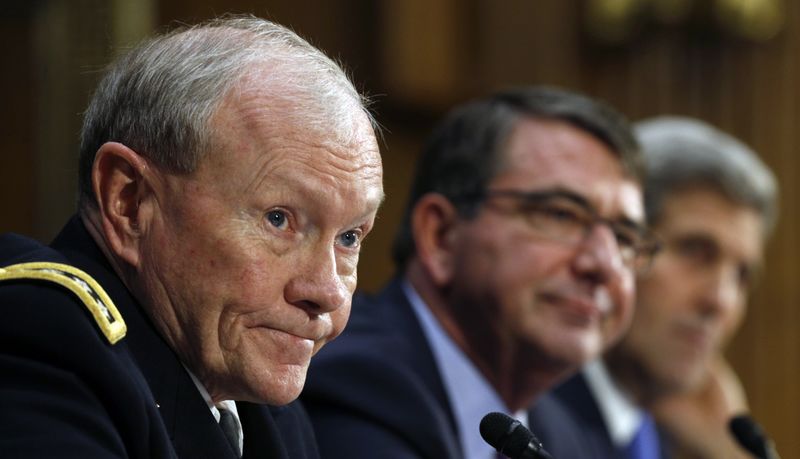By Patricia Zengerle
WASHINGTON (Reuters) - U.S. Senate Democrats made clear on Wednesday they have serious concerns about President Barack Obama's war authorization request for his Islamic State campaign, although they hoped lawmakers could pass a compromise measure.
The politically charged initiative would give specific authority and limitations to the seven-month-long campaign, which is being fought under broad approvals passed more than a decade ago for foreign military endeavors under President George W. Bush.
Despite appeals from top administration officials for bipartisan support, Republican Senator Bob Corker, chairman of the Foreign Relations Committee, told a committee hearing that no Democrats backed the proposal.
Senator Robert Menendez, the panel's top Democrat, said members of his party wanted strict restrictions on the use of combat troops and geographic limits.
"Democrats are not willing to ... give this or any other president an open-ended authorization for war, a blank check," he said.
There are also doubts among Republicans, who often criticize Obama's foreign policy as too passive. They want the authorization for the use of military force (AUMF) to have few restrictions on military commanders.
Ash Carter, Obama's secretary of defense, testified that the administration sees a more limited campaign than in recent wars.
"It is intended ... clearly to rule out the kind of campaign we waged in Iraq and Afghanistan because we don't foresee that kind of campaign is necessary," Carter said.
Obama's AUMF request has made little progress since he sent it to Congress a month ago, and it may never pass.
Some Democrats want to repeal the 2001 AUMF passed for Bush's fight against al Qaeda, a legal authority that the Obama administration is using for the fight against Islamic State that began in August.
Administration officials insist that the 2001 authority must continue to protect the country against al Qaeda.
Tensions in Congress over foreign policy are high. But Corker and Menendez said they hoped for compromise, and Corker said they would begin on working on it in the next 10 days.

Secretary of State John Kerry told the hearing that an AUMF passed by only one party would be worse than none at all, citing the need to send a united message to Islamic State militants and U.S. allies.